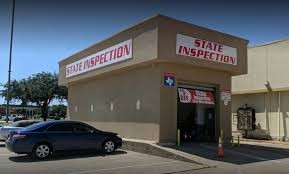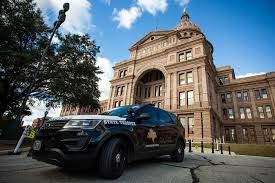
The legislative session has completed its 13th week. 8 weeks to go. The legislature will take a brief break after today’s proceedings for the Easter weekend. Here’s what’s happening:
House Debating Budget

The House convened this morning and began debate on House Bill 1, the state’s biennial state budget. The is the one and only “must pass” bill of the session, since it funds all government agencies and functions for a two-year period. Debate on the budget bill will be long and robust. There were 388 amendments to the bill that have been filed by House members for consideration during the debate today.
Among the amendments that will be considered is one to ban any state dollars from going towards voucher programs. Vouchers – where state dollars can be used for private school tuition – is a priority of the Governor and Lt. Governor this session. If fully considered, this will be a test vote to see if the House has any interest in considering a voucher program.
There are also several amendments that ban the use of any state dollars for gender modification or transgender related health care. Other amendments ban state dollars on diversity programs in higher and public education. Another proposal calls for a state appropriation of $2 million to regulate the content of materials in public school libraries. There was also a series of amendments filed to eradicate affirmative action in the admissions process at public universities and to eliminate all vaccine mandates in the public and private sector.
The most interesting amendment filed calls for the naming of any temporary or permanent morgues that are used in association with Operation Lone Star – the Governor’s border security initiative – as the “Joseph R. Biden Morgue.”
Consideration of nearly 400 amendments will obviously be a time-consuming task. The House will deliberate well into the night before signing off on the final product to be approved by the chamber. Last session, the budget debate lasted until 4AM, and this session is not expected to be much different.
Busy Week for Senate

In the initial debate of a bill to prohibit medical care providers from performing gender transition related surgeries on minor children, or prescribing gender transition related hormones or puberty blockers to minors, the Senate adopted an amendment that would exempt any medical provider that had already begun care on a particular child. After considerable pushback from the state Republican Party, the Senate reconsidered the amendment the next day and removed the “grandfather” clause from the bill, thus taking it back to its original form. The bill passed the Senate along party lines, and now fully prohibits any type of gender transition related care associated with a minor child. The Texas Medical Board is now instructed to revoke the license of any physician performing such care.
The Senate this week also gave approval to legislation that would address any local prosecutor in the state that has adopted a policy of refusing to prosecute specific types of crimes. SB 20 establishes a process of removing criminal prosecutors from their elected positions for failure to prosecute crimes related to abortion, elections fraud, and drug possession. The goal, according to the bill author, is to stop local prosecutors who ignore state law. Local prosecutors – mostly in the state’s urban centers – say the law overrides the voices of local constituents who have duly elected the local prosecutors.
The Senate also had some fireworks this week during the debate on the bills that ban drag shows that children can see or attend. The bills cut off funding for public libraries that allow drag shows and prohibit drag show performances at any location if the shows are deemed to be “too sexual in nature”. During the debate, Sen. Roland Gutierrez, a Democrat from San Antonio who also represents Uvalde, declared that if the Senate is really interested in helping kids, then they should focus on gun violence. His repeated reference to a series of gun safety related legislation during the debate drew harsh criticism from the Senate’s presiding officer, Lt. Governor Dan Patrick. Senate rules dictate that any debate on legislation must pertain directly to the legislation at hand. Patrick reminded Gutierrez of that and warned him that future speaking privileges on the floor could be in jeopardy if he continued this line of questioning. After the dust settled, the Senate passed the bills on a party line vote.
The Senate also approved two bills aimed at creating more reliability for the state’s electric grid with the goal of preventing the type of blackouts that occurred during the 2021 winter storm. The bills call for more natural gas production in the state to assist electric providers by having a more reliable source of generation. The bills would use state funds as well as funds paid by customers to construct new natural gas-powered electric generation plants that only come online in times of extreme weather conditions. Critics wonder how the plants would affect competitive rates and how efficient a system can be that has a certain amount of power sitting offline for extended periods of time. The bills head to the House for consideration, where there are no similar bills filed.
End to State Vehicle Inspections?

A bill that has failed for the last three sessions is once again under consideration. On the surface, this is a bill that most would be in favor of, and seemingly have little opposition. But at a hearing of the Senate Transportation committee this week, the proposal to forego vehicle inspections once again hit a bump in the road. While most drivers would be more than happy to have the ability to renew their registration stickers every year without the burden of an inspection, several mechanics and car care specialists showed up to oppose the bill, saying that the problems they identify during inspections ultimately make the roadways safer. The committee members agreed and voted down the bill 5-3. The committee chairman said he will give the bill one last shot next week, but the prospects are dim.
State DPS Officers Patrol Austin

Officers with the Texas Department of Public Safety have begun assisting the Austin Police Department with routine patrols and investigations. The partnership between the two law enforcement agencies was announced this week in an effort to address the increased number of 911 calls and levels of crime here in the Capitol city. The collaboration is expected to decrease the response times to both emergency and routine calls, as well as decrease traffic accidents through enhanced traffic controls. Furthermore, according to the agreement, the DPS will assist in open case investigations. Significant delays in police response and the street takeover events in February prompted both Austin and state leaders to join together for this agreement.
The enhanced law enforcement presence – which has been fully endorsed by Austin Mayor Kirk Watson – is already showing results. According to research published by the Austin American-Statesman, the first week of the initiative netted the seizure of 174 grams of cocaine, 40 grams of heroin, 127,000 grams of meth, along with the recovery of 6 stolen cars and 11 stolen firearms. State troopers will continue to work mainly on the enforcement of traffic laws and responding to violent crimes.
Political Notes
Someone pulled an April Fool’s joke on Governor Abbott over the weekend. Paperwork was filed with the Federal Elections Commission that established the “Greg Abbott Presidential Campaign”. Inquiries were placed to the Governor, and his aides immediately responded that the current Texas Governor made no such filing. After some research by an Austin TV station, the filing was traced to someone not associated with Abbott, and the phone number listed was traced back to an Arby’s restaurant in Grand Prairie. No word on if the FEC will pursue charges for the false submission.
A new poll conducted this week reveals that the indictment of former President Trump is actually helping his chances for securing the 2024 Republican nomination. The Defend Texas Liberty PAC commissioned the poll that shows Trump to be the choice of 52% of likely Republican primary voters in Texas. Florida Governor Ron DeSantis is a distant second, being the choice of 20% of the respondents. The numbers show Trump up 9% and DeSantis down 7% compared to a similar poll conducted in February. Nationally, a Rasmussen Reports poll released yesterday showed Trump with a 47% to 40% lead over President Biden.
Houston trial attorney Tony Buzbee is considering an entry into the crowded field of candidates running to be the next mayor of Houston. Buzbee unsuccessfully challenged incumbent Sylvester Turner in 2019. Turner is prohibited from seeking reelection due to term limits. Buzbee would join a group of announced candidates including front runners Congresswoman Sheila Jackson Lee and state Senator John Whitmire. Buzbee, commenting on social media, says he is a moderate who can spend $15-$20 million on the race. He went on to say that supporters are strongly encouraging him to run and that he sees a path to victory. The Houston mayoral election is in November or this year.
Activity this Week
Both chambers began their week with Monday sessions and have met daily this week. The House continued to work through its calendars, having passed roughly 20 bills, including a bill to eliminate the death penalty for offenders diagnosed with severe mental illness such as schizophrenia or intellectual deficiencies. The House will work through the evening on the state budget and then adjourn until Monday.
The Senate is meeting today as well, and may take up the controversial school voucher program, which allows state funds to be used for private school tuition. There is still some question as to whether or not the full Senate has the votes necessary to consider the legislation. After today’s session, the Senate will adjourn until Tuesday, April 11th.
What’s Next??
Next week, the House Ways and Means Committee will hear a bill to restore tax incentives for businesses looking to either start or relocate in Texas, restoring a program that expired last year.
When lawmakers return Monday, there will be 56 days remaining in the session.
